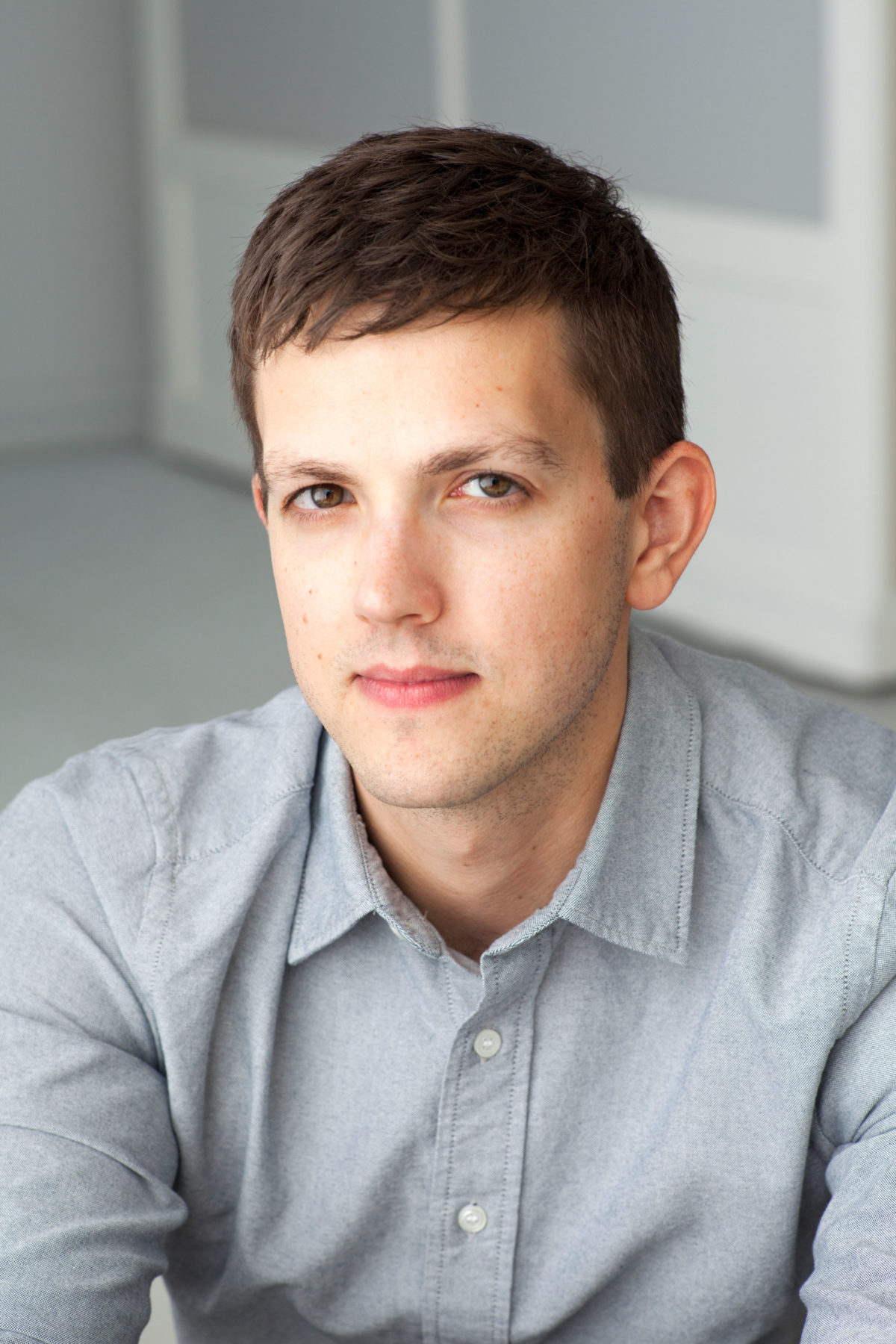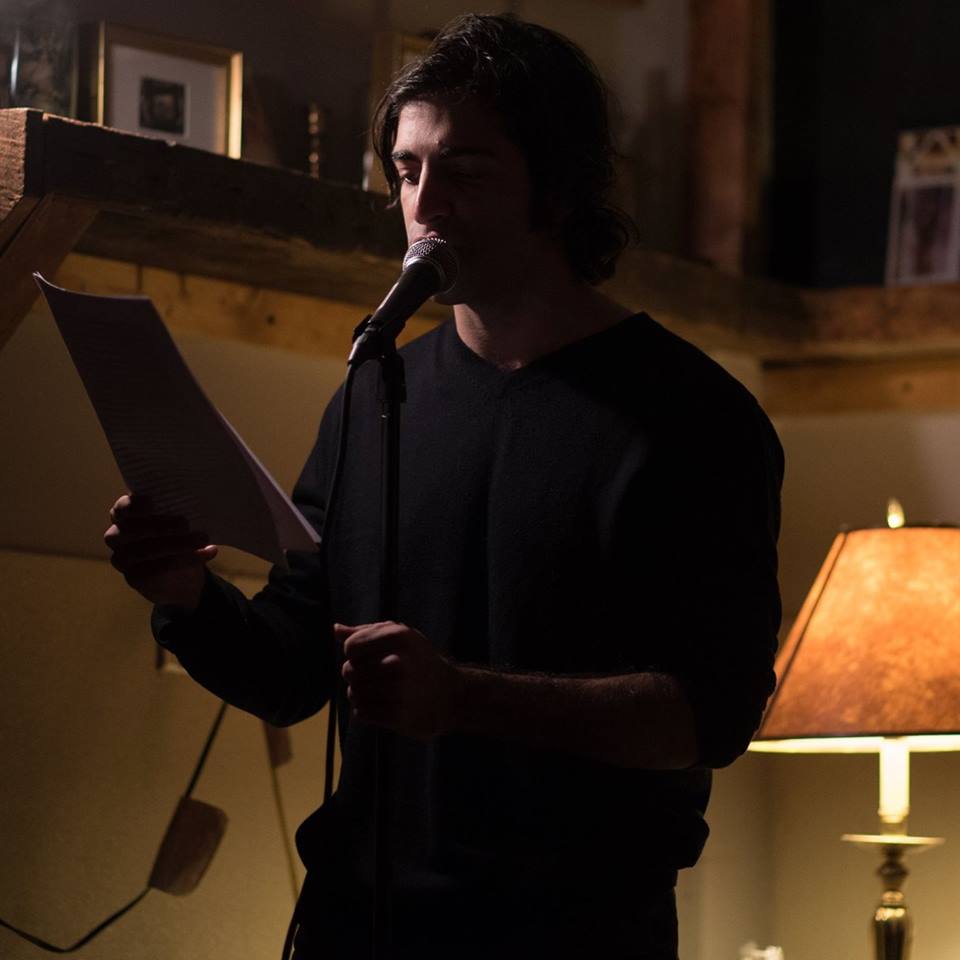conversation with Gabe Habash and brian birnbaum
Brian Birnbaum (ORANGE): Congratulations on the novel – it is the work of a wunderkind, it is a tour de force, you know, all those superlatives. What drink have you been drinking to celebrate?
Gabe Habash (GH): I drink a lot of coffee and green tea.
ORANGE: In Stephen Florida, the eponymous narrator is a college wrestler hellbent on winning the NCAA D-IV Championships. He’s fairly aggressive and at times outright violent. Did you see the novel as a vessel for exploring a more sophisticated perspective on someone who in real life might be viewed as an archetypal animus? Did you just want to write about wrestling? Did you just want to write a book? I guess what I’m asking is: what was your motivation to write this character?
GH: I didn't really see Stephen as a vessel. He's the engine of the story. Because his voice supplies the primary force, I think it's more that he made possible whatever other vessels I wanted in the story.
I did want to write about wrestling, not only because I think it's interesting, but because it provides such a crystallized example of obsession and the desire to make the most of one's capability.
I also wanted to write about depression and loss and grief, and how those affect the mind and how the mind can adapt to them.
I recently read Blanchot's book of criticism The Space of Literature. One of his main positions, as I read it, is that an artistic work has an origin point and everything that follows that origin, all the effort that goes into creating and shaping it, is a struggle toward the origin, but is ultimately a failure, since it can never reach the origin. All of which is to say that I never approached this novel with any sort of plan or agenda. I wasn't outlining it and thinking, "Here's where Stephen's breakdown will show A, B, C," or, "If this character does X, then it'll show Y about grief." I found it much more useful--just at the outset, before beginning the first draft and then as I went along in the first draft--to think about the various things that interested me and that I thought fit together in the confines of this story, and then once I started to see where the built-in structure that I had blueprinted would lead me. Stephen, as a character, is ready-made on page one to address many of those concerns and interests, such as the fact that his parents have already died and he's entrenched in his choice to wrestle at Oregsburg College, but then the various turns the novel takes led me to new paths that I never would've found if I'd mapped every single thing out.
ORANGE: Blanchot’s ‘origin’ reminds me of Nabakov’s ‘epiphany’, in the sense that the latter would get a sudden spark for a book idea then proceed to spend however many years toiling after its image on paper. Either way, could you offer the mise en scene for Stephen Florida’s origin or spark? E.g. was it the character or the story that struck first, or something else entirely? Where were you when it happened? Did you know you were onto something or did it feel like just another idea?
GH: Oh, man, this is a fun question. Let's see if I can remember. I created the Word doc in July 2013, and I wrote the opening page. At that point I already had Stephen's voice pretty well figured out, which is why I was able to write the first draft relatively quickly. The opening is sort of like the first puff of the flamethrower--it's Stephen's voice clearing space and announcing what's what.
But even before the first page I knew I had something big because I had all of these elements that needed a novel to explore. With wrestling, you have the five-month season to serve as the structure, the inherent drama of it being his final season, and the inherent drama of the sport of wrestling itself. And the old rule that your character must be good at something and want something--I knew if I combined those two things I had an organically propulsive story. Stephen is both good at wrestling and only cares about succeeding in wrestling. And in the North Dakota setting I had this evocative place with all these mysterious little crevices.
I don't remember the exact moment the idea for the book started, but in its earliest form it was definitely a solitary college wrestler on a single track toward winning a championship, and how all these various things would threaten to derail him from his monomaniacal goal, and then what those threats would do to him psychologically, and how he'd respond. On the first page Stephen says, "I am a motherfucking astronaut." That was one of the first lines I wrote, and sort of locked the whole project into place. That sentence, I suppose, is the "origin." After having that sentence, it was just finding out where the furthest reaches of the project would go.
ORANGE: Are there any other sports you’re into aside from wrestling?
GH: Basketball is my favorite. I'll watch it at any level of competition and play basketball video games during the offseason. But sports in general are increasingly fascinating to me if you look at the aspects that aren't on the playing field. For instance, I've become less and less interested in football as I've gotten older, but one of my favorite shows now is Last Chance U because you get to spend hours with the players, coaches, and teachers. Then the football games themselves are sort of an afterthought--they're most significant as an event that affects the people, and as the viewer you witness how the people in the show react and adapt to the results.
ORANGE: Ditto et al.; in fact, for me, I think it’s precisely the drama – the reactions of players, fans, and pundits to outcomes – that’s raised pro basketball to the top of major American sports. But you mentioned that you’d watch basketball at any level of competition. It makes me think about Stephen, who competes as a Division IV college wrestler. It’s clear that he’s aware of being relegated to the marginalia of the sports world, and it only goes to emphasize the eccentricity and destructive nature of his obsession to win. Can you add to why you made Stephen a D-IV wrestler; and was it at all a subconscious reflection of the writer’s process, to be so isolated and yet to work so hard?
GH: Stephen was always going to be wrestling at the fringes because it was necessary to amplify his solitude. The North Dakota setting is also meant to amplify his solitude. The story would be fundamentally different if he were wrestling at a powerhouse like Iowa or Oklahoma State. For one, a lot of what the characters get away with in the book wouldn't be possible because they'd be under much more scrutiny as a Division I program. Stephen had to be free to move about unnoticed. Also, a wrestler in Division I or an Olympic hopeful with all of these future opportunities potentially available to him--the motivation for why that wrestler would want to win is more easily understandable, and therefore, to me, less interesting. Stephen's wrestling career is a dead end that's quickly approaching--that is far more interesting.
I also thought, maybe paradoxically and incorrectly, the reader might be more interested in Stephen's story because they'd have access to a story that no one else was paying attention to.
ORANGE: I often worry that, within our fraught social climate, fiction might lose its power to provide ethical paradigms implicitly through the shittiness of certain characters – i.e. to show the good by way of the bad. Stephen does a lot of shitty things and thinks a lot of shitty thoughts. Do you ever worry that coeval readers might attribute Stephen’s shittinesses to you as the author?
GH: There are so many different ways to address this question, which means it's a good question. When I was writing the book, I thought it was part of my job to make the reader uncomfortable. At one point pretty late in the book Stephen commits an act that, after I wrote it, I went back and deleted. Then I went back and put it back in. That doesn't answer your question other than to say that at first I was trying to calibrate his "likability" but then I realized the mistake because the act he commits just felt right. So it went back in. That was the only moment I really thought about his likability. The rest of the time the things that Stephen does and thinks just felt like the natural reflections of his mind.
In terms of how readers take the book, that's for readers to decide. Once the book is done, you can't worry about the response since it's out of your control.
ORANGE: What parts of Stephen’s are also yours? Or, what parts might be sublimations of you and your experiences?
GH: When I started the first draft, I was frustrated with a lot of things, and those certainly made their way into the book. So I'd say some of the emotional aspects of the book were mine, as well. There were a few events that happen in the book that happened to me, but most of it is made up.
ORANGE: I’m asking some difficult questions here. Let’s scale it back. Why do you write?
GH: Selfishly: to figure things out. Unselfishly: to try to give a reader something to enjoy, think about, laugh at, pass the time, forget about problems, or help address problems.
ORANGE: When we spoke after your reading you mentioned a lot of writers that you don’t write anything like (other than their shared penchant for humor), like Lorrie Moore. Could you tell us who some of your other influences are, and how you went from them to this pyrotechnic style of yours?
GH: I think Sea of Hooks by Lindsay Hill was probably the most apparent influence on the book, namely because of the fragmented structure. I was reading a lot of Bolaño when I was writing the book. And I think reading Barry Hannah finally confirmed to me that if you can make your reader laugh, it buys you a lot of good will. Pale Fire was a life-changing book for me. So were This Boy's Life and A Severed Head. But I think I just mainly wanted to keep a reader from getting bored. If I could take it a step further and surprise the reader that'd be even better.
ORANGE: Bolaño, I think, is the perfect analog to your ability to allude to extremely ominous behavior/phenomena without ever really saying it. What do you think draws you to that sort of ‘surprise’, as you say you’d like to effect, that augment and synergize the outward revelations or moribund events that are present in Stephen Florida?
GH: I think having that sense of mystery, or a layer of what can't be articulated, however you want to phrase it--that allows the story to exist beyond its confines. It sort of vibrates beyond the edges of a central North Dakota college campus. At the risk of "saying it" when you've stated that the book never really says it, so much of Stephen's story is him trying to impose order. So much of his way of life is objective: he either wins or loses, that's what it boils down to. But I wanted there to be the sense that everything else that he is ignoring or not giving as much attention to as wrestling, all of those things are creeping closer to him.
ORANGE: Earlier on you invoked ‘obsession and the desire to make the most of one's capability’. I recently reread The Art of Fielding by Chad Harbach. Perhaps I’m projecting from my own experiences with obsession as correlated with failure, but was there ever a point when you toyed with the idea of Stephen’s obsession enervating his ability on the wrestling mat? Or rather, what went into Stephen’s nearly omnicapable wrestling skill in juxtaposition with the rolling foibles of his personal life?
GH: Well, in terms of talent, Stephen is a good wrestler in Division IV, but that still means there are three divisions above him. And he's also failed to win the championship in his first three years, though he has had respectable seasons. I wanted there to be the sense that he is dragging himself to the top of the podium by pure will. If he has to, he will cheat. And he has also learned from a decade of matches; he is able to adapt on the mat in ways he can't in other areas in his life. But mostly I wanted readers to be catching him at the apex of his capability, which is largely due to his personal reservoir of will (what he draws on as fuel for his wrestling capability) maxing out into the red.
ORANGE: Another thing I often worry about is Coronal Mass Ejections – i.e. major sun weather aimed at Earth, which in theory could cause massive geomagnetic storms that knock out our power grids. And when I’m going to fit in my daily exercise – that’s another thing I worry about. What is/are something(s) that you worry about?
GH: Money and death.
Gabe Habash is the author of the novel Stephen Florida. He lives in New York.
Brian Birnbaum graduated from Sarah Lawrence College with his MFA in Fiction. His work has appeared or is forthcoming in Potluck Magazine, 3AM Magazine, The Collagist, The Smart Set, and more. He works for a communications access agency and lives in Harlem.


